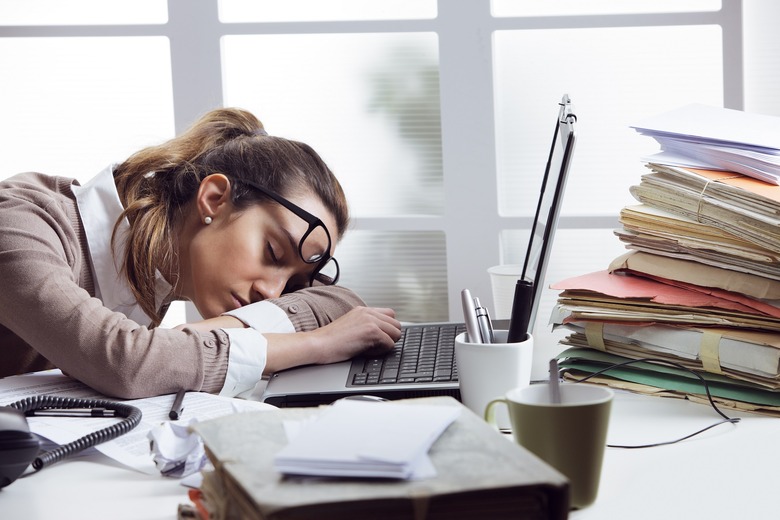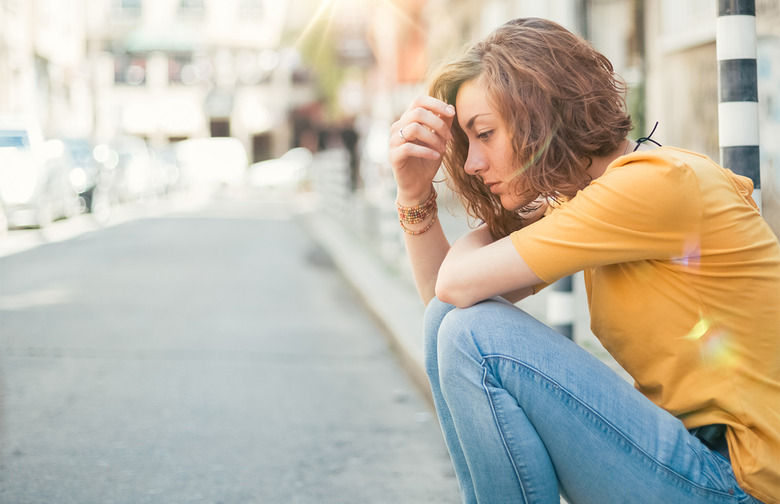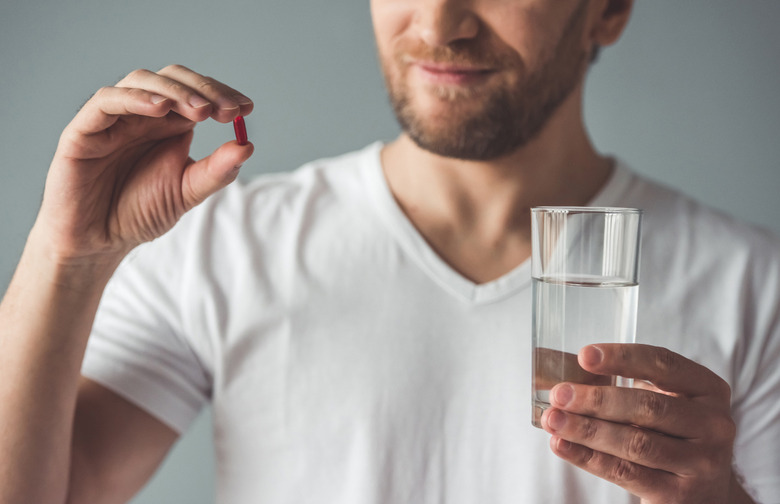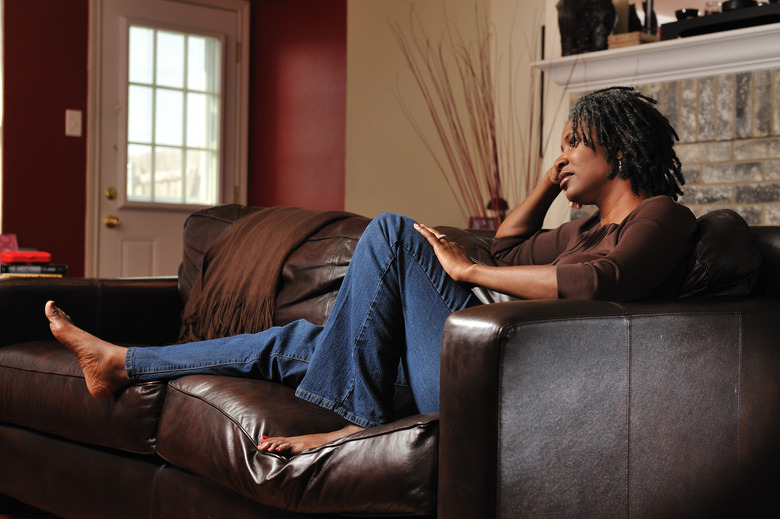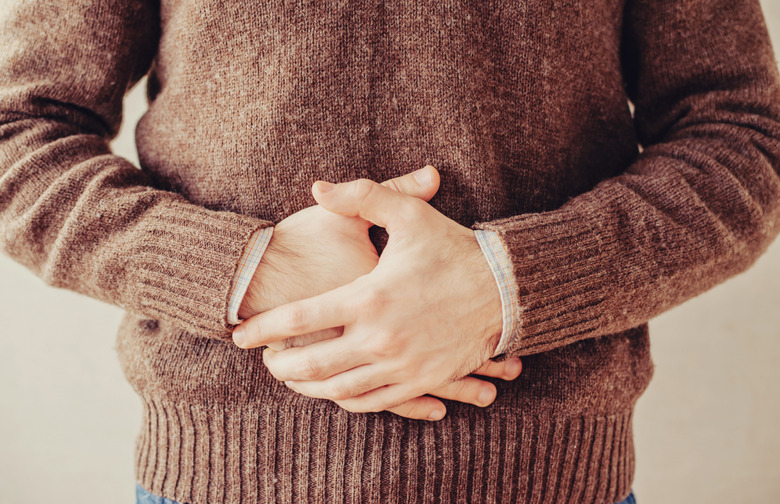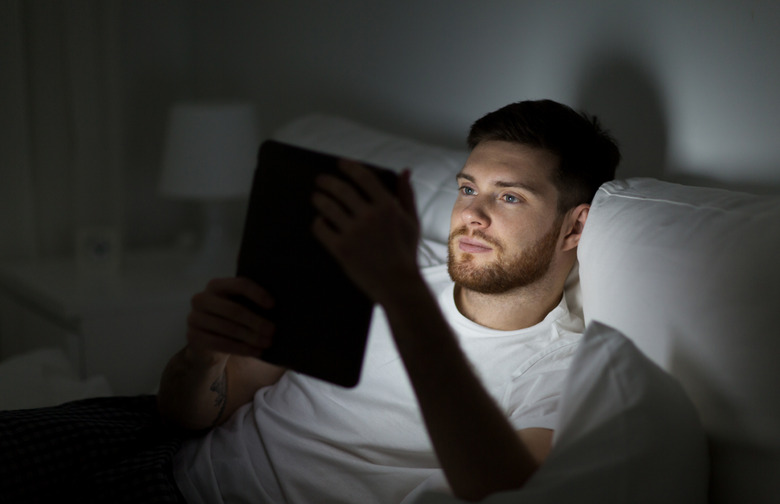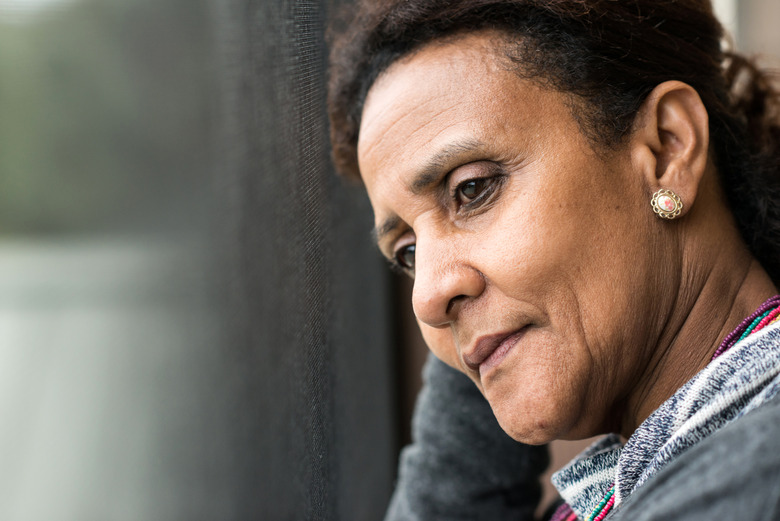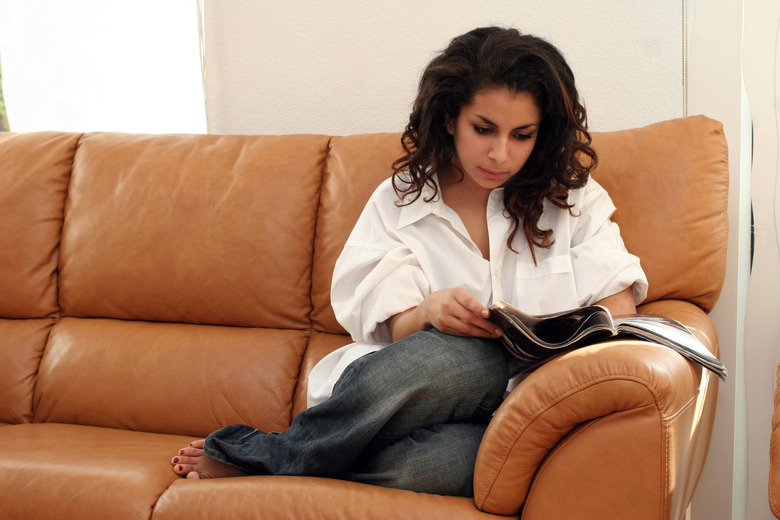20 Surprising Reasons You're Always Tired Slideshow
When you don't get enough sleep, you know why you're tired. Doctors have been recommending eight hours since before you were born.
But we're not here to advise you on that obvious solution. Every now and then, there are those times when you tried so hard and you did it: You got your full night's sleep. And yet when you woke up and made it to work, you were immediately exhausted.
There are perfectly logical reasons why you're feeling this way, even after you got all that rest.
Fatigue can really put a damper on your day. It makes tedious, mountainous ordeals out of small tasks and can turn a simple conversation into a laborious chore. You live a full, busy life — you need all the energy you can get. We understand that you can't afford to be dragging all day, and that feeling well rested is crucial for making it through your packed schedule.
It's likely that your lifestyle is secretly robbing you of your energy without you even knowing it. Are you making any of these mistakes that set you up for hours of exhaustion?
You Beat Yourself Up
We criticize ourselves constantly, both out loud and in our heads. It's time to stop the negative self-talk. Not only is it unproductive (and frankly, hurtful), it's also making you exhausted. Not just mentally, but physically, too.
We're talking about all the negative things you say to yourself, including seemingly benign negative comments like "I need to do this better," or "I really need to lose weight." All that mindless chatter floating around your head telling you you're not good enough adds up quickly and can take a toll on your mental health. A suffering mental health can result in some very real physical symptoms, including tiredness.
If you're having trouble staying positive, try meditating or taking some time for self-care. Even the smallest changes can make a world of a difference.
You Cut Carbs
Carbs are the body's favorite source of energy. So if you're cutting carbs, you're literally depriving your body of the energizing foods it craves. This can leave you feeling sluggish and drained, even after you've eaten a large meal.
Incorporate more healthy sources of carbs that give you lasting energy if you're feeling tired. Some good options include oatmeal, whole wheat bread, grains, and potatoes.
You Don’t Drink Enough Water
Every single bodily function your body goes through requires hydration. When you're dehydrated, the body slows down to try to preserve what little reservoir it has. This "slow" feeling can translate in your mind as sleepiness.
Most doctors recommend nine to thirteen cups of water per day. For some simple tips to stay hydrated, click here.
You Drink Before Bed
Drinking before bed is an all-too-common blunder for insomniacs and night owls alike. The dose of alcohol might serve its purpose to help you fall asleep, but it's robbing you of the precious quality of your slumber.
In fact, Web MD found a whopping 27 studies that conclude alcohol is disruptive to your natural sleep cycle. After drinking, your body has a more difficult time finding and remaining in REM sleep, which is when you derive the most rest. If you do rely on alcohol to fall asleep, consider trying a more natural sleep aid instead.
You Exercise Too Much
It doesn't matter how much sleep you're getting — if you overdo it with the workouts, your body is going to be exhausted. Over-exercise, a practice where you neglect to take days off from the gym and work yourself to near exhaustion, is often revealed in chronic symptoms of tiredness such as fatigue and headaches.
One study found that intense exercise dramatically increased the levels of fatigue in persons of all levels of fitness. The more intense the exercise, the more severe the exhaustion.
Of course, moderate exercise has been proven time and time again to supercharge your energy and leave you feeling more energetic than ever — just make sure you take some days off, too, and listen to your body. If you're tired or sore, the healthiest option is to skip the workout.
You Have a Fatigue-Related Disorder
Both chronic fatigue syndrome (CFS) and adrenal fatigue often go undiagnosed for this exact reason: Sufferers believe their tiredness is normal or simply a symptom of lack of sleep. However, these conditions are debilitating and very real. Fatigue symptoms of CFS are intense, and often insurmountable. Unfortunately, there is no known treatment or cure.
Adrenal fatigue, on the other hand, varies in severity. According to Dr. Axe, adrenal fatigue is believed to affect up to 80 percent of adults worldwide. It's caused by hormone imbalances and disruptions, and can be treated with a number of natural and holistic remedies.
You Have an Iron Deficiency
Anemia, a condition where red blood cells require more iron to effectively carry oxygen, has a number of causes and can result in intense feelings of weakness and fatigue. The deficiency is surprisingly common, especially in women on their menstrual cycle.
This deficiency has an easy fix: Just eat more iron. Foods such as spinach, kidney beans, beef, and nuts have lots of it, and it's probably a good idea to eat more of these healthy foods anyway.
You Have an Undiagnosed Thyroid Disorder
Hormones can wreak havoc on your energy levels, and your thyroid can wreak havoc on your hormones. There are a number of thyroid problems you could be experiencing and nearly all of them have fatigue as a symptom. If you suspect you have a thyroid deficiency, consult your doctor and request a blood test.
You Have Anxiety
Mental health has so much control over physical health — including our energy levels. When a person is anxious, their adrenaline is running on high. When adrenaline runs out, it causes a crash that feels like fatigue.
Additionally, brooding tension and circulating worries can lead to feelings of tiredness, simply because your busy brain and tense muscles can get worn down from overuse.
Practicing methods to reduce anxiety can help relieve this tiredness and fatigue by stopping the cause at its source. Consult a mental health professional or try a few home remedies if you think you're affected.
You Have Fluctuating Blood Sugar Levels
Ever heard of a sugar crash? Despite the fact that you can't really get a sugar high, there is some logic behind the crash. When you eat a large amount of simple carbohydrates, your blood glucose spikes. Then, once the body quickly processes the extra energy, you experience a crash. The rise and fall of blood sugar can be chaotic for your body and your perceived energy, resulting in you feeling frequently tired.
You Refuse to Eat Before Bed
Going to bed hungry can put a serious damper on your sleep. Hunger has been shown to cause multiple disturbances throughout the night, which derails the quality of your rest. Having a snack before bed — preferably one that's low in sugar to keep your blood glucose more regular — could be a good call if you feel your stomach rumbling.
The whole "don't eat after 8 p.m." thing is proven to be complete bogus, anyway.
You Rely On Caffeine
Coffee wakes you up in the moment, but that jolt is a short-term fix to a long-term problem. Additionally, the frequent caffeine could serve to exacerbate the problem and make your natural energy cycles worse.
Caffeine is a blocker for the chemical adenosine, responsible for signaling sleep. If you don't build up enough of it, you're less likely to feel it when you really should be hitting the hay. As you could probably guess, this sets you up for staying up later than you should be for optimal rest. Try one of these coffee alternatives instead to jolt yourself awake when you need it — and lay off when you don't.
You Skip Breakfast
Food is, quite literally, fuel. When you neglect to give yourself fuel, you're obviously going to crash. Plus, skipping breakfast sets you up for binges and junk food later in the day — two common triggers of tiredness.
Jump-start your metabolism, and subsequently your energy, with a breakfast filled with carbohydrates, protein, and fats. Just make sure your body has what it needs. We promise that you'll feel the difference.
You Spend Too Much Time Inside
Office jobs and entire days indoors can be detrimental to a person's health, including their energy levels. Sitting all day makes you lethargic, and it turns out that the lack of fresh air can do a number on you, as well. According to a series of studies conducted at the University of Rochester, spending time outdoors can boost feelings of both physical and mental energy by nearly 40 percent.
Get your vitamin D any way you can, whether that's going for a walk on your lunch break or sitting on the porch after you get home.
You Use Technology Before Bed
Watching Netflix before bed is doing more than just keeping you up to watch another episode. Looking at a computer or other screen before bed has been shown to disrupt production of melatonin, an important sleep hormone.
It's not just computers, either. TVs, phones, and even electronic reading devices all emit harsh light that disrupts your sleep. Set a bedtime for technology at least a few hours before your actual bedtime. You'll likely fall asleep faster and sleep better if you do!
You’re Depressed
No, feeling just a little sad won't affect your sleep. But clinical depression seriously does.
Depression can cause insomnia, sleep disruption, and feelings of low energy throughout the day. If you are concerned you might be experiencing depression, seek advice from a mental health professional.
You’re Disorganized
Ten minutes of decluttering can save you hours of exhaustion! Seriously, if you needed a sign that it was time to get organized, this is it. Studies show that clutter and chaotic surroundings limit your brain's ability to focus; you'll have to work harder to pay attention to anything and everything that's going on all day. The extra effort adds up and can cause mental exhaustion.
A simple, low-stress way of staying organized is to make it a part of your morning ritual to tidy up. Take a few minutes before getting started with your day to put things away, organize, and throw out things you don't need. The productivity will pay off later, we promise.
You’re on a Diet
A calorie deficit is a deficit of energy in your body, by definition. If you're restricting the calories you eat, you're restricting the energy you have, too. Of course, overeating can also result in a decline in energy. The best way to eat is the way that works for you and your hunger. Both ignoring and overindulging hunger put stress on your mind and your body!
Many diets also exclude certain groups of foods — and therefore certain nutrients. Any nutrient deficiency — whether it's a lack of fat, protein, carbs, or micronutrients — can result in fatigue because your body has to work harder with smaller amounts of fuel. The most energizing diet? The diet that incorporates all foods.
You’re Sedentary
Rest can be helpful sometimes, but if all you're ever doing is resting there can be consequences. Living a sedentary lifestyle causes sluggishness and resistance to movement over time. In one study conducted at the University of Georgia, sedentary adults who incorporated even minimal amounts of movement every day felt more energized and much less fatigued after six weeks.
You’ve Had to Make Some Big Decisions Lately
Making decisions burns calories. No joke — that's why taking tests and sitting through job interviews leaves you so drained. If you're having a day where you've got a lot going on, take some extra time to rest. You're likely to feel burnt out from all that extra brain energy. If you don't have any down time, you probably need to make sure you eat some foods that fight stress.
More from The Daily Meal:
Surprising Signs You're Eating Too Much Sugar
These 20 Habits Are Making Your Anxiety Worse
Surprising Signs You Need More Vitamin D
18 Facts About Diet Soda That Might Make You Finally Stop Drinking It
